TSO Sumida designed by Semba Corporation
“TSO Sumida” is a shared office established by the Tokyo Metropolitan Government to practice new work style. In addition to individual workspaces, it has a coworking space, rental offices which is enable to work on small short-term projects, and a workshop for craftmanship. With an emphasis on being “friendly for future”, we approached the entire process from an ethical perspective and renovated a 45-year-old textile research institution into a shared office. Rather than rebuilding itanew, we inherited and utilized the memories that had cultivated thus far by converting existing items into designed materials and furniture. We appealed “Ethical Design” visually, converting wastes boldly. We challenged to expand the possibility of reuse of industrial waste by committing to the esthetics thoroughly.
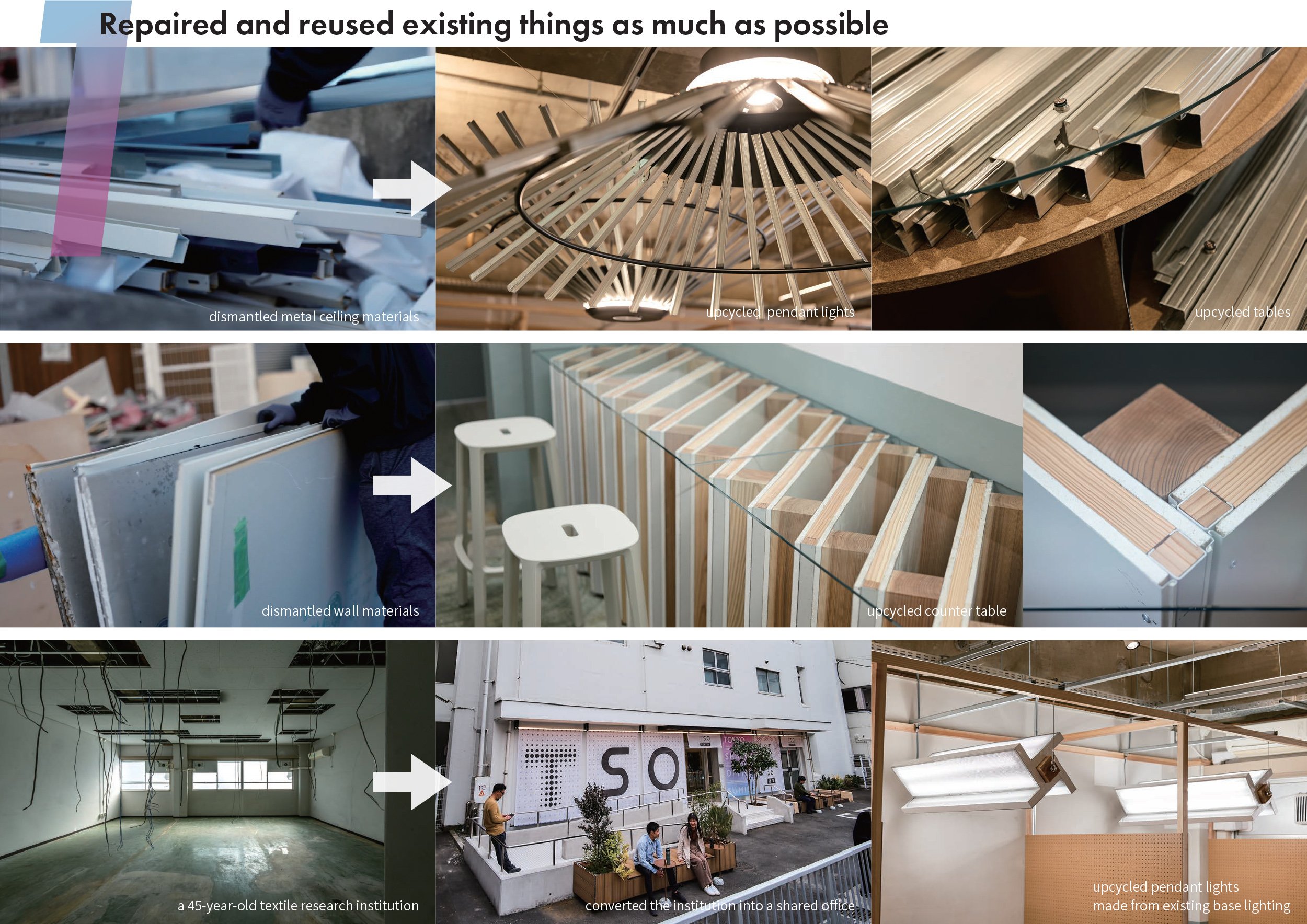
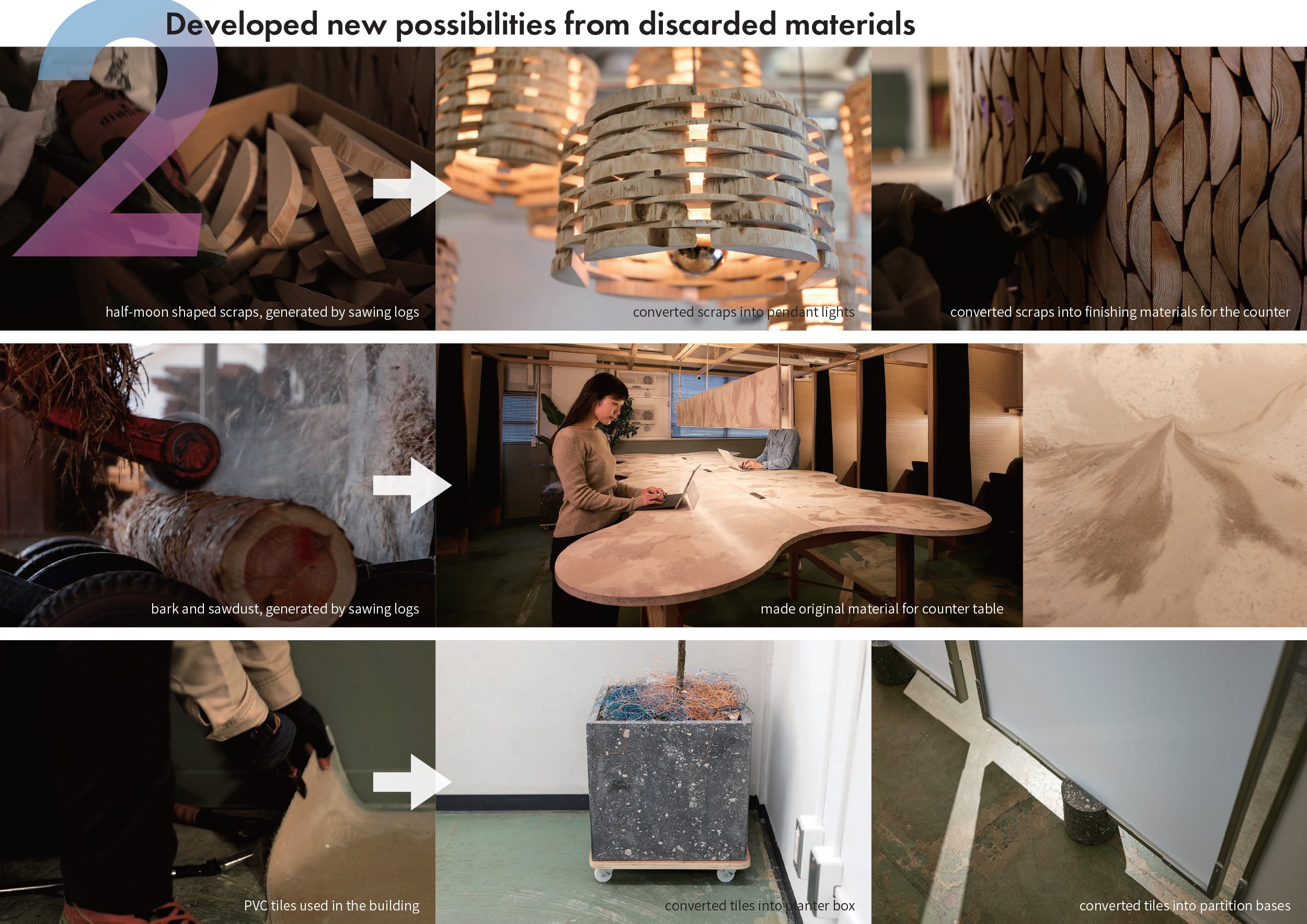
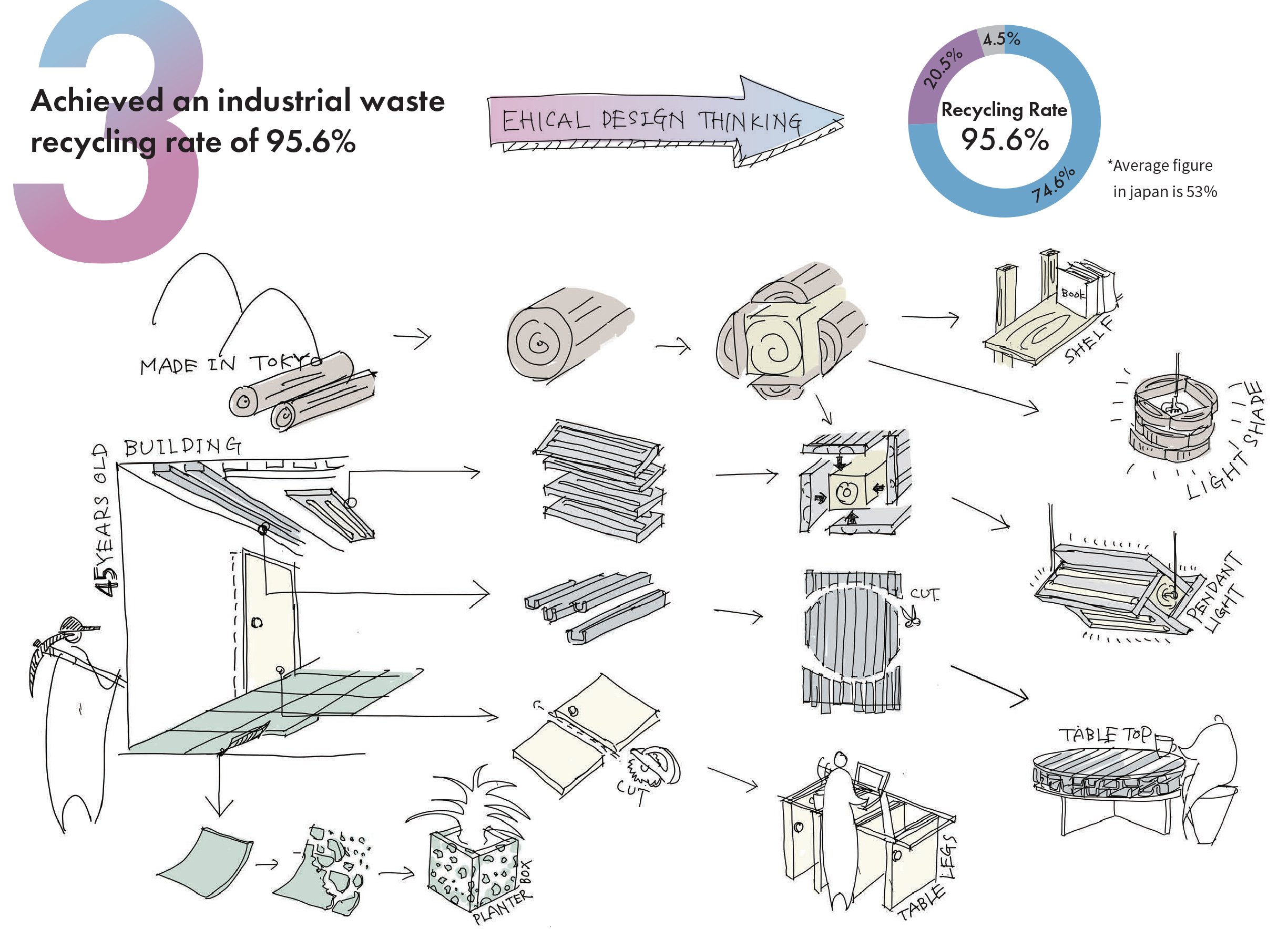
There are 3 points in this renovation. First, we repaired existing things used in the building as much as possible and reused and upcycled items needed to be dismantled as a result of repair and changes in the use and planning of the facility and edge materials generated during wood processing. For instance, we upcycled half-moon shaped scraps generated by sawing logs, into pendant lights and finishing materials for the counter, redesigned metal ceiling materials that were dismantled for the replacement of HVAC and electrical equipment into counter tables and pendant lightnings, and reused dismantled wall materials for a counter table. Furthermore, we collected and used items that were no longer to need in other places, such as chairs for arts and crafts class in schools, which were disposed of in large quantities, and drums that were difficult to reuse.
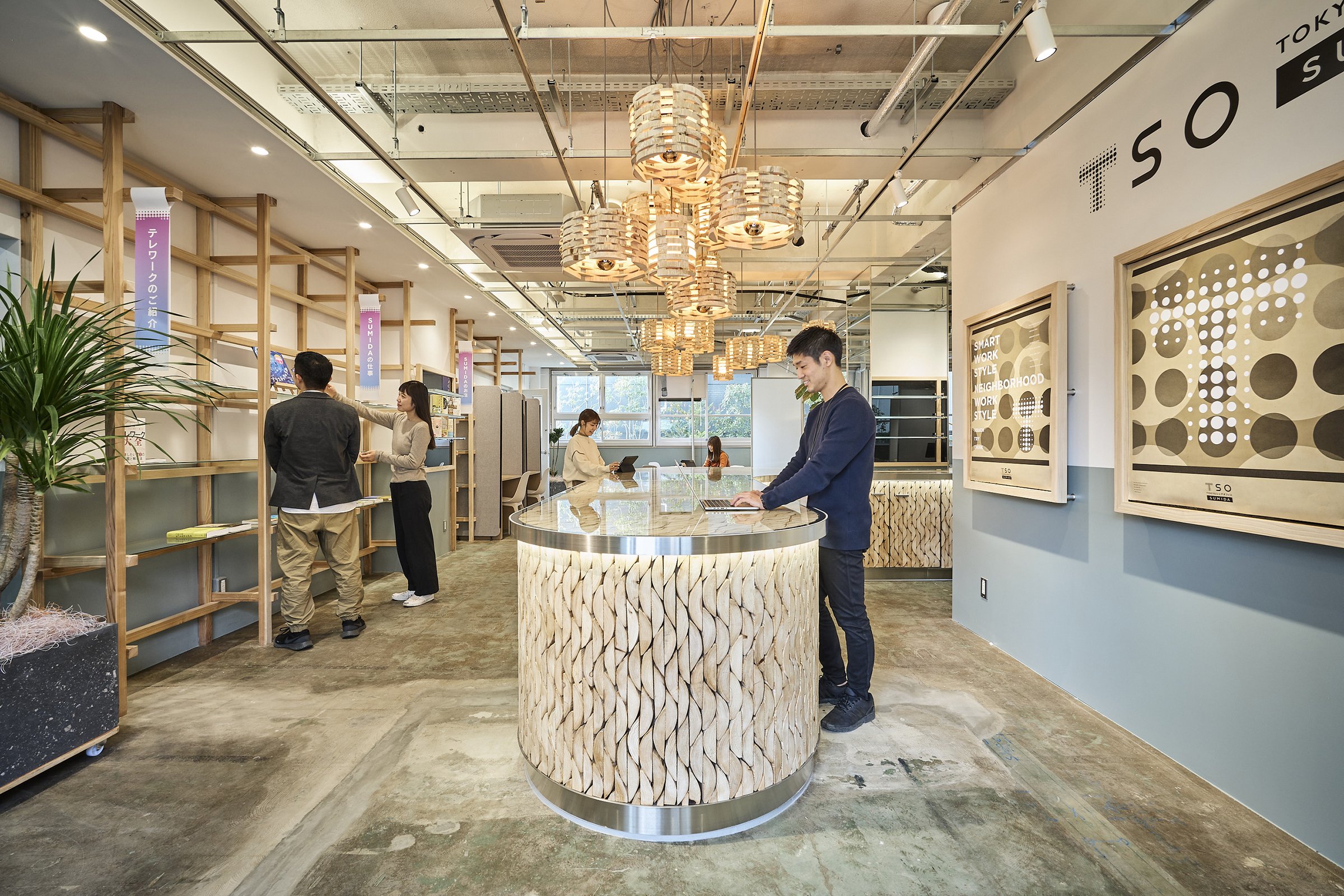
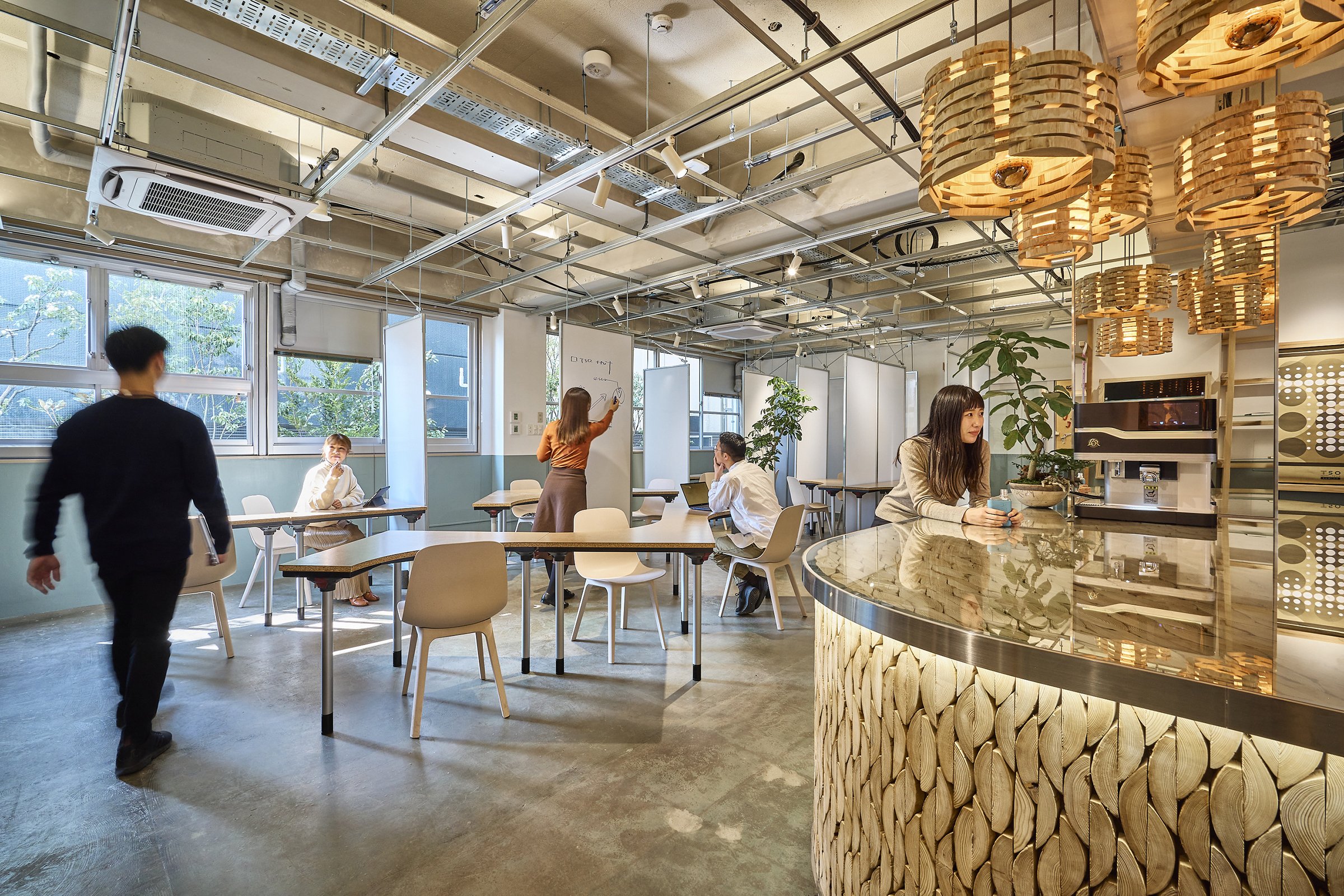
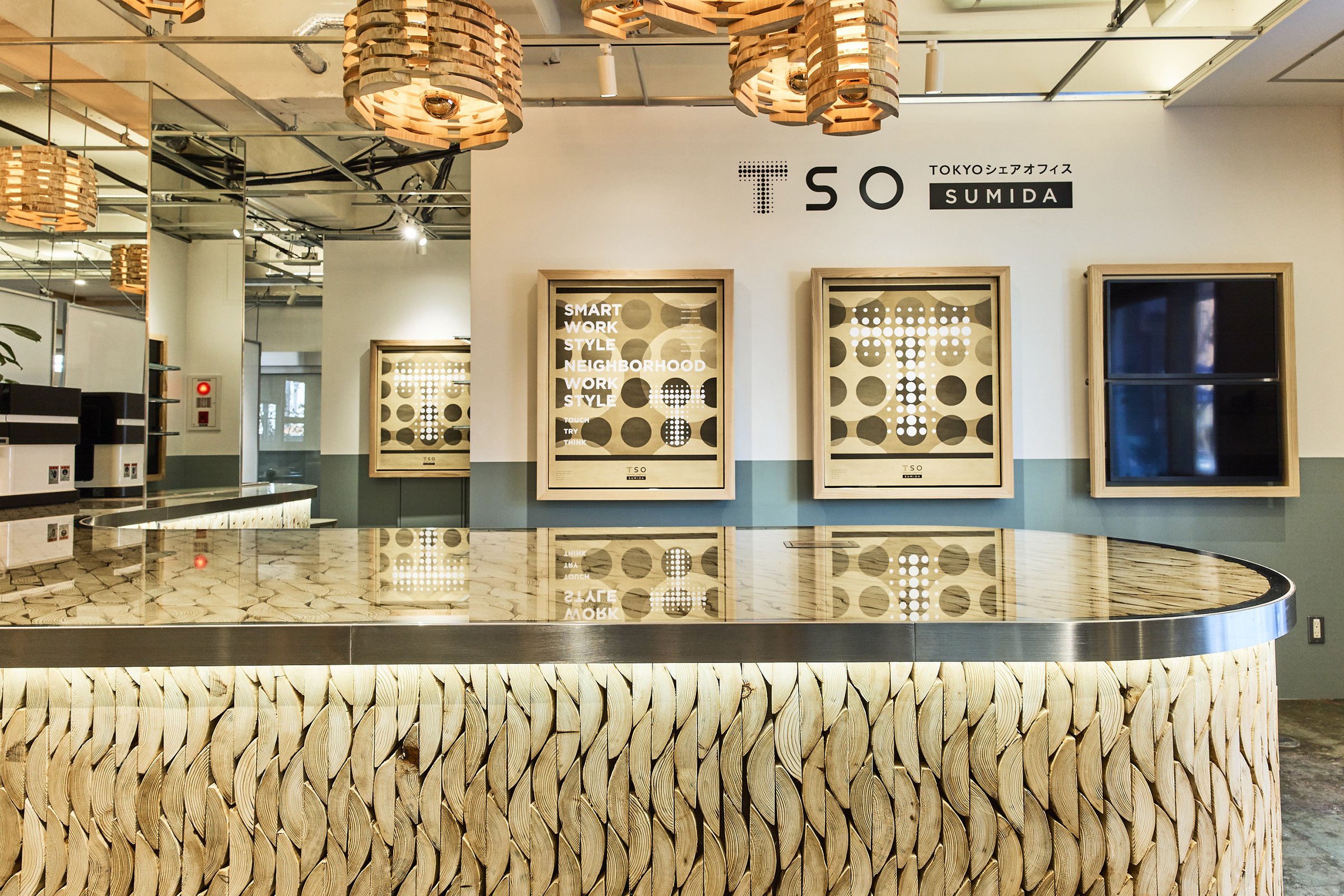
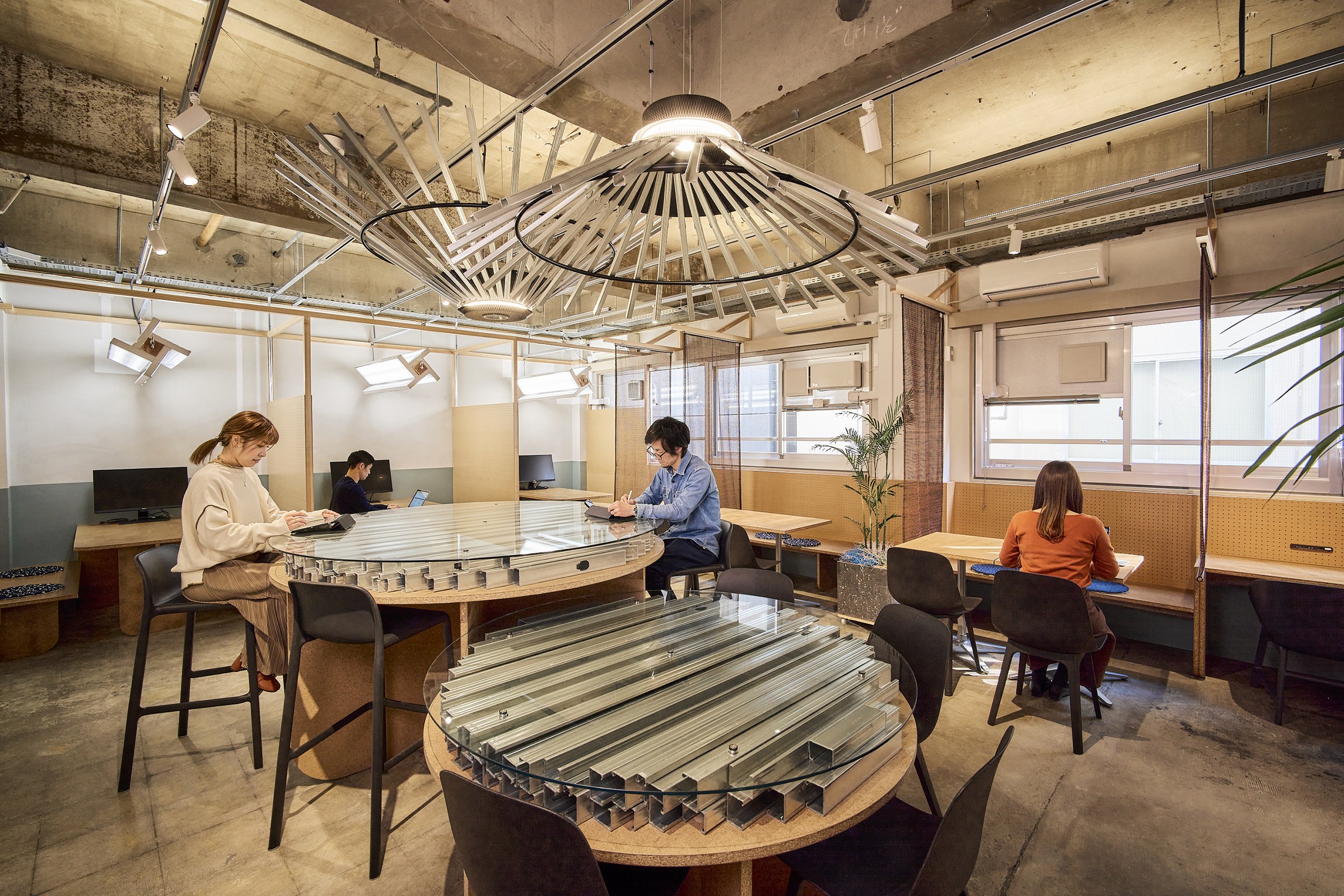
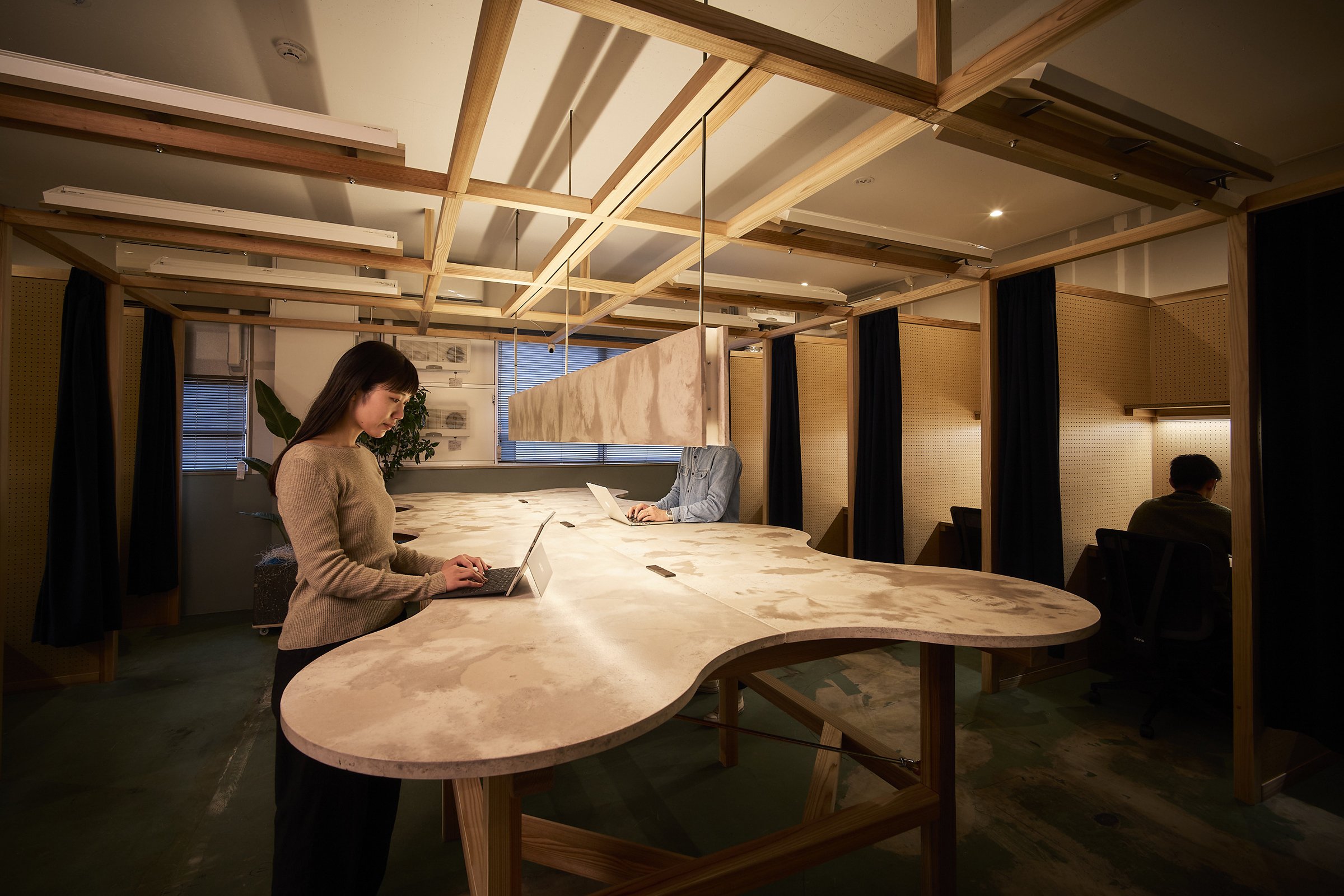
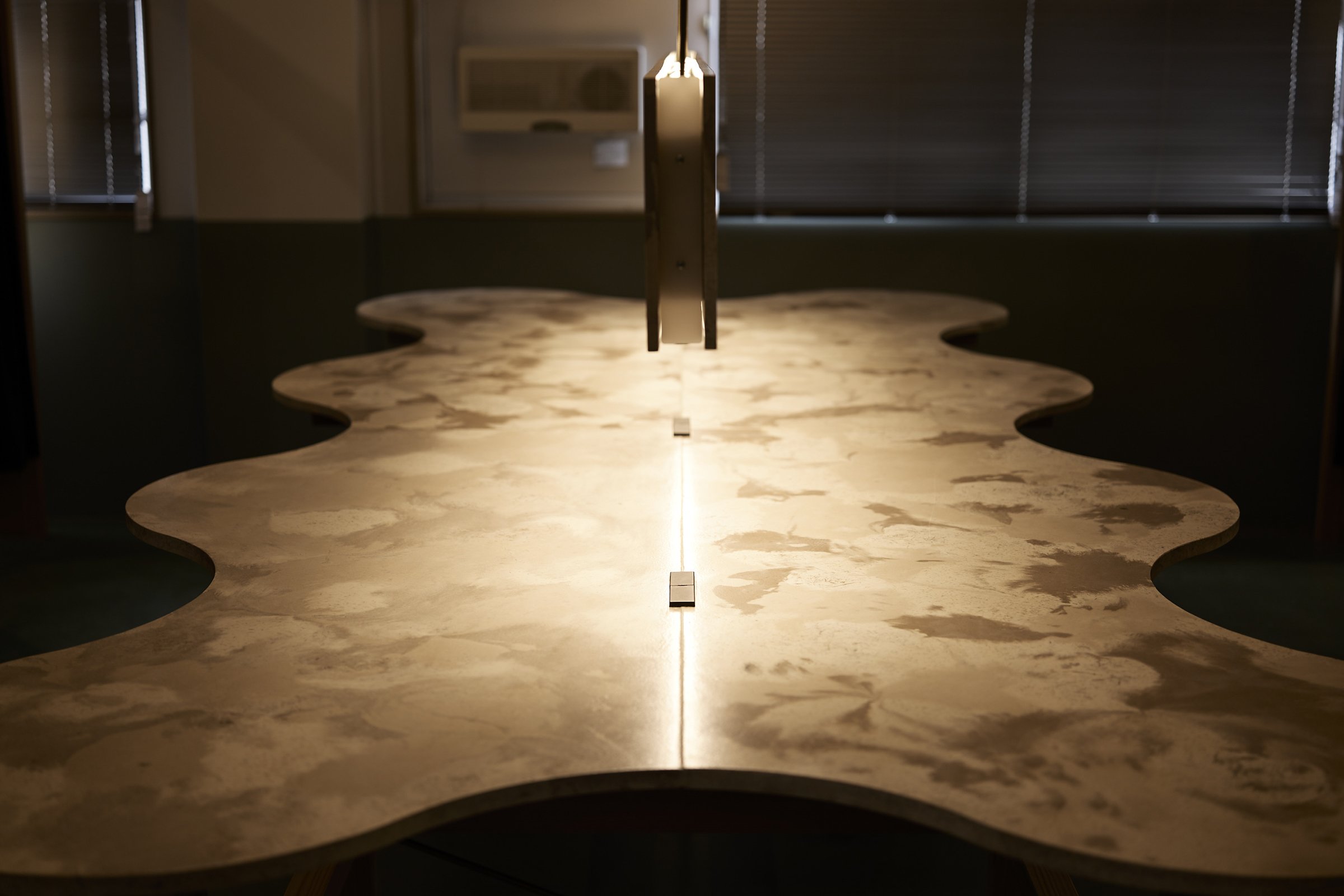
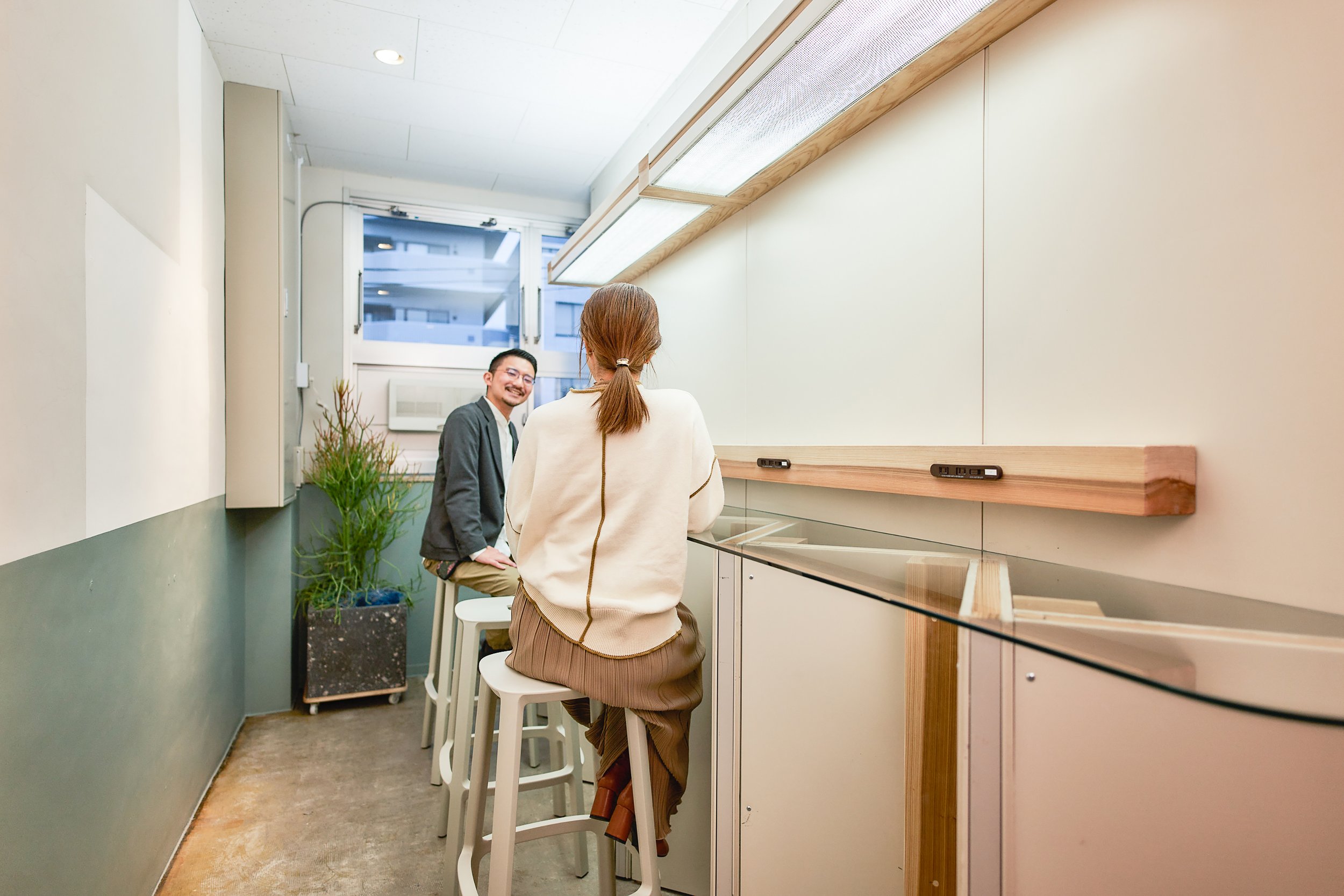
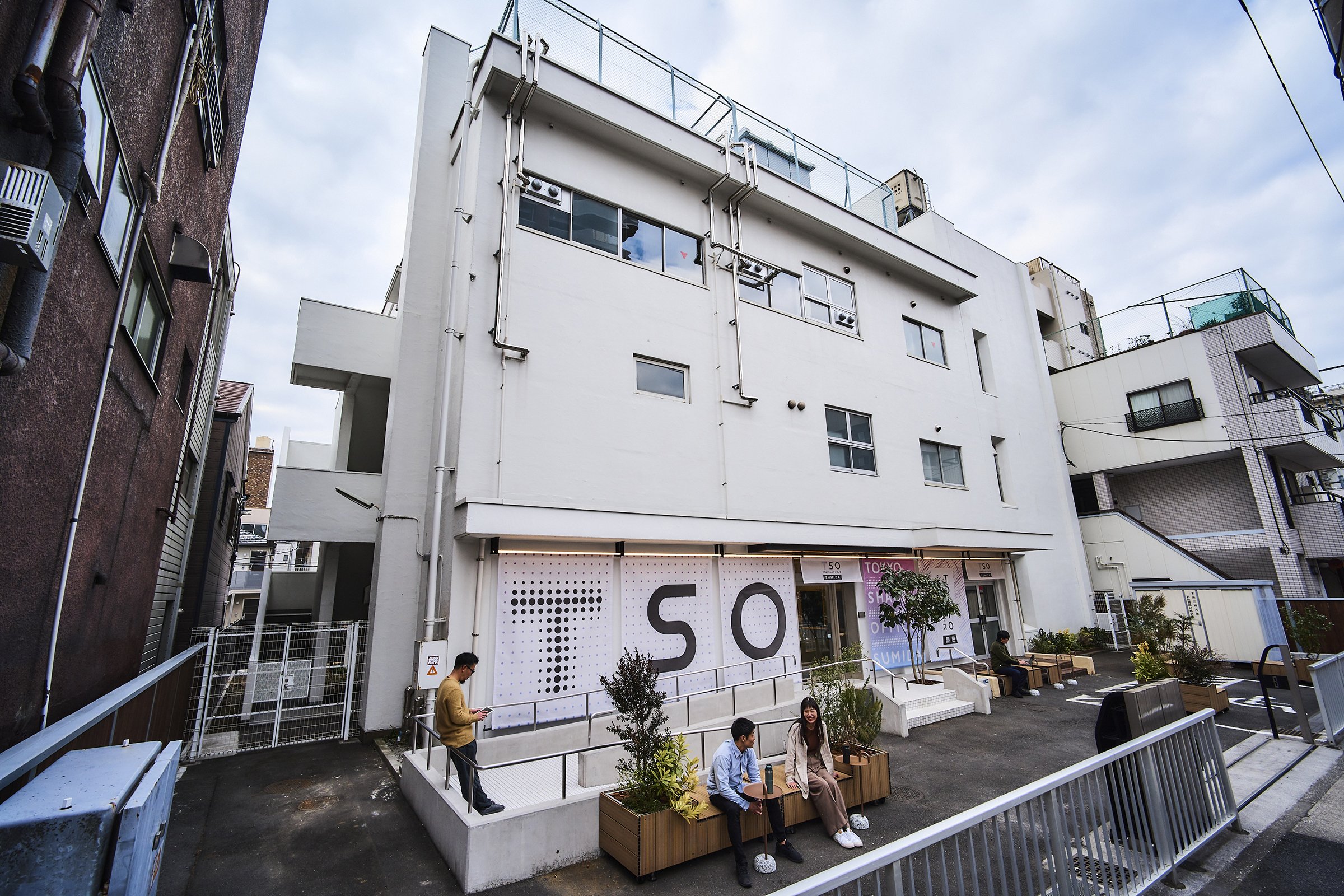
Second, we carried out a research project to seek new possibilities from discarded building materialswith we+ inc., a contemporary design studio, and produced an original material. We created an expressive marbled top panel with bark and sawdust generated in large quantities during wood processing, made counter table with it, and set it in the co-working space.
Third, we achieved an industrial waste recycling rate of 95.6%, though the average of an industrial waste recycling rate in Japan is 53%. At the demolition site, we finely sorted items that we were not able to upcycle and had no choice but to disposal and recycled them.
We break the conventional thinking of space creation and work on “Ethical Design”, which is an essential issue from both industrial and social perspectives. In spatial design industry mainly in the commercial market, emphasis is placed on economic rationality, profitability, and novelty. Therefore, the life span from construction to demolition is very short. A space build with a large investment is destroyed in a short period of time, and a large amount of waste is generated. We found the environmentally burdensome methods strange and began to think that we should aim for ethically correct creation, and make proposal that satisfy both sustainability and design. This renovation project of TSO Sumida is representative of Semba’s Ethical Design, as it was able to make effective use of an aging facility with as little waste as possible.
Drawing & Planning
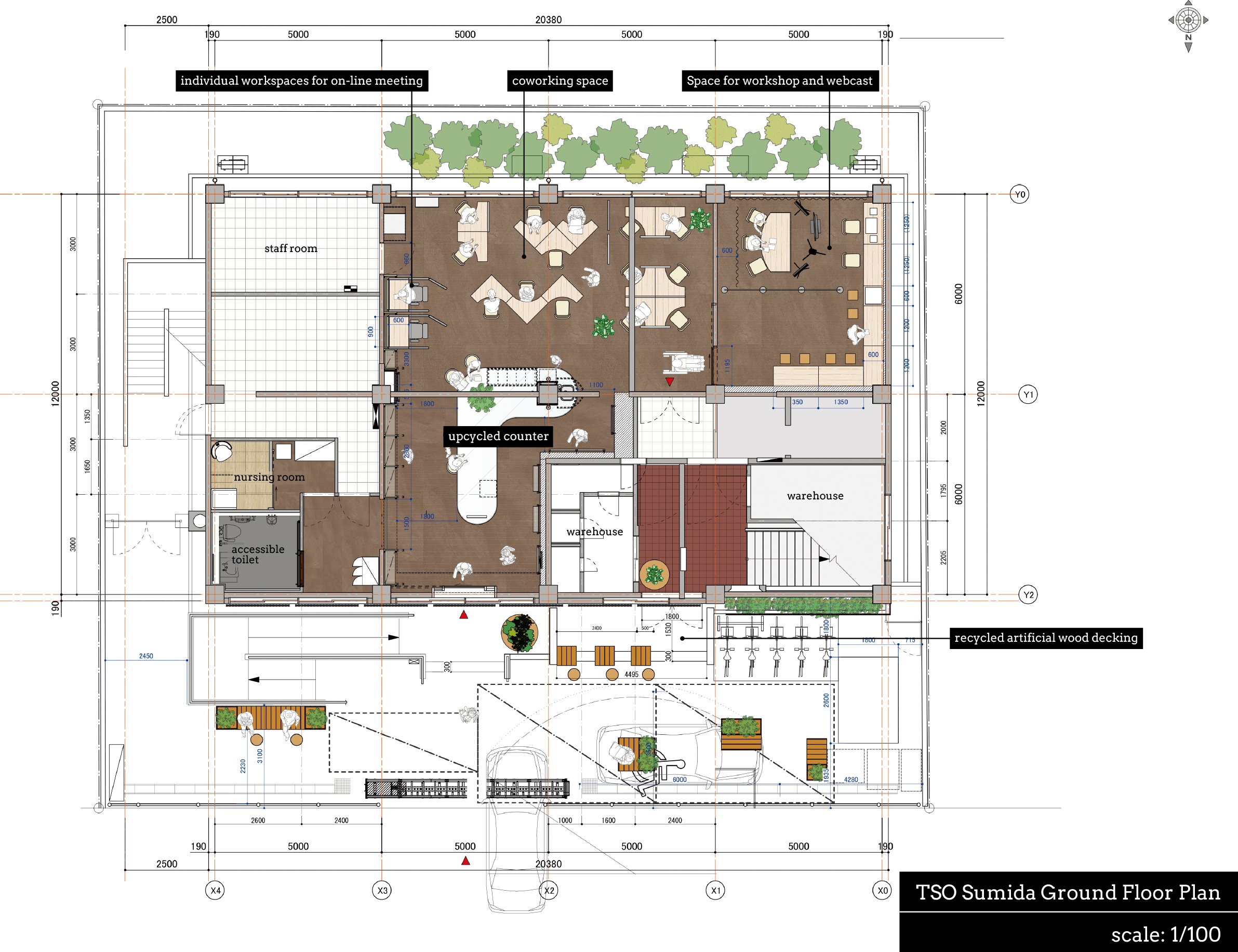
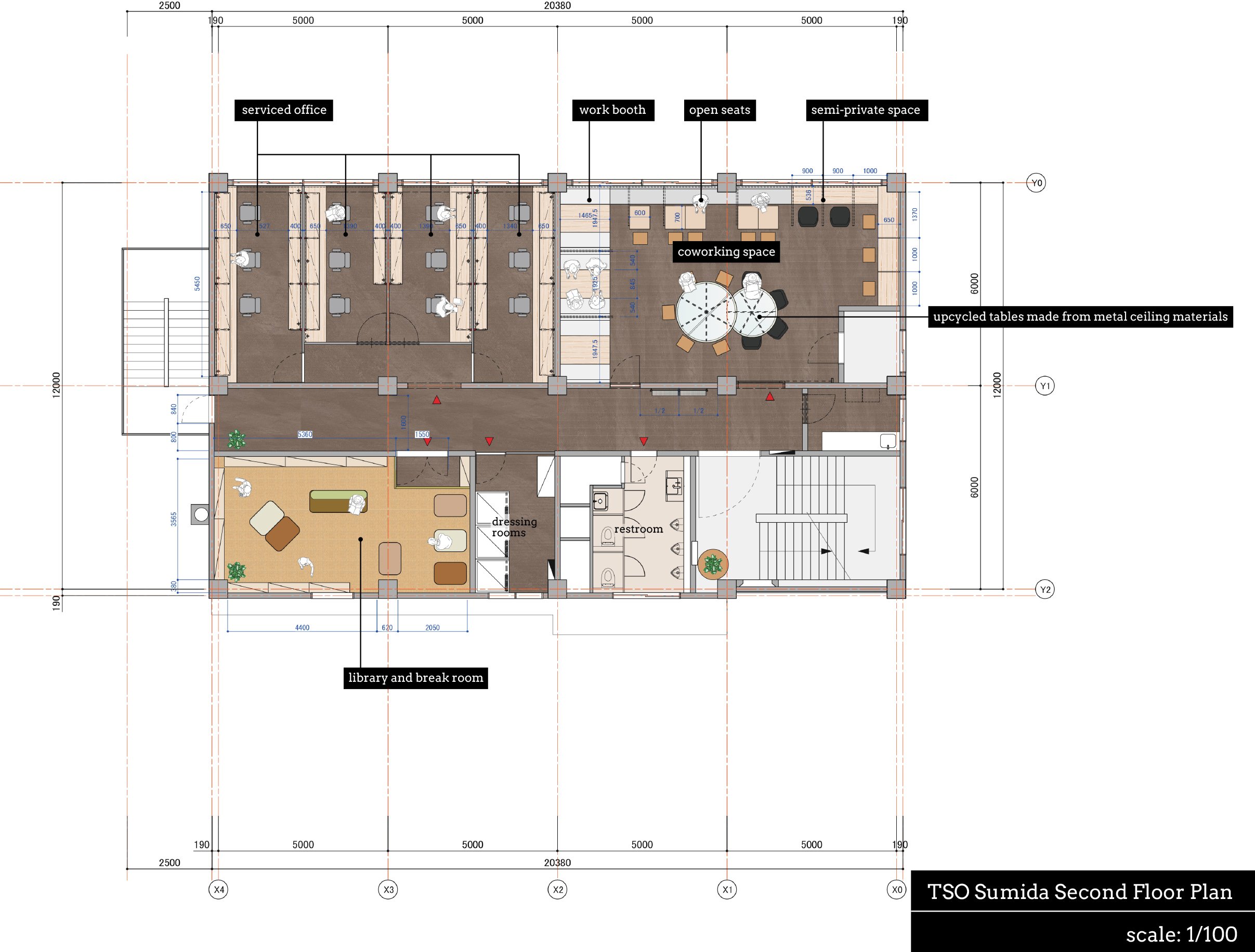
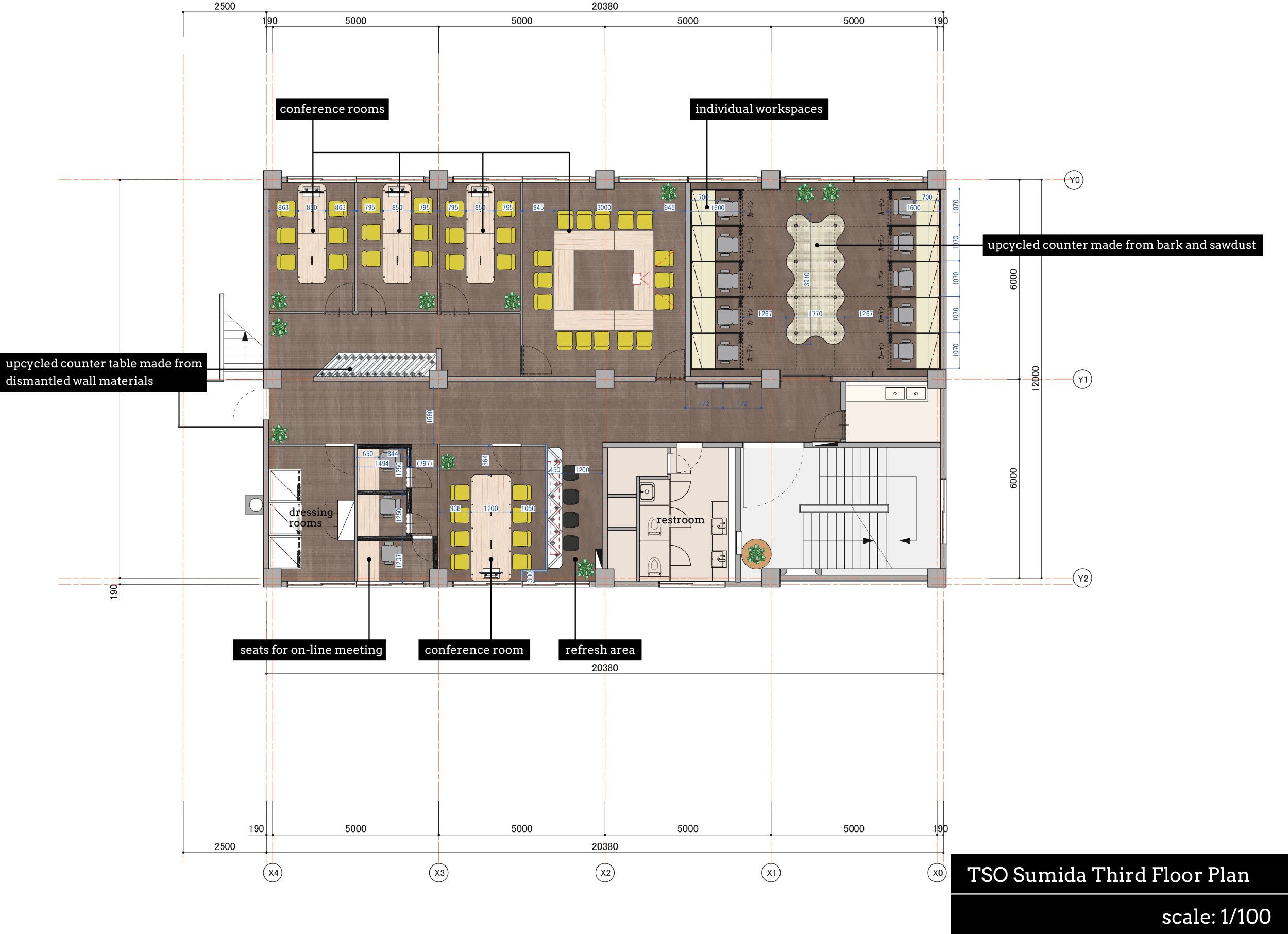
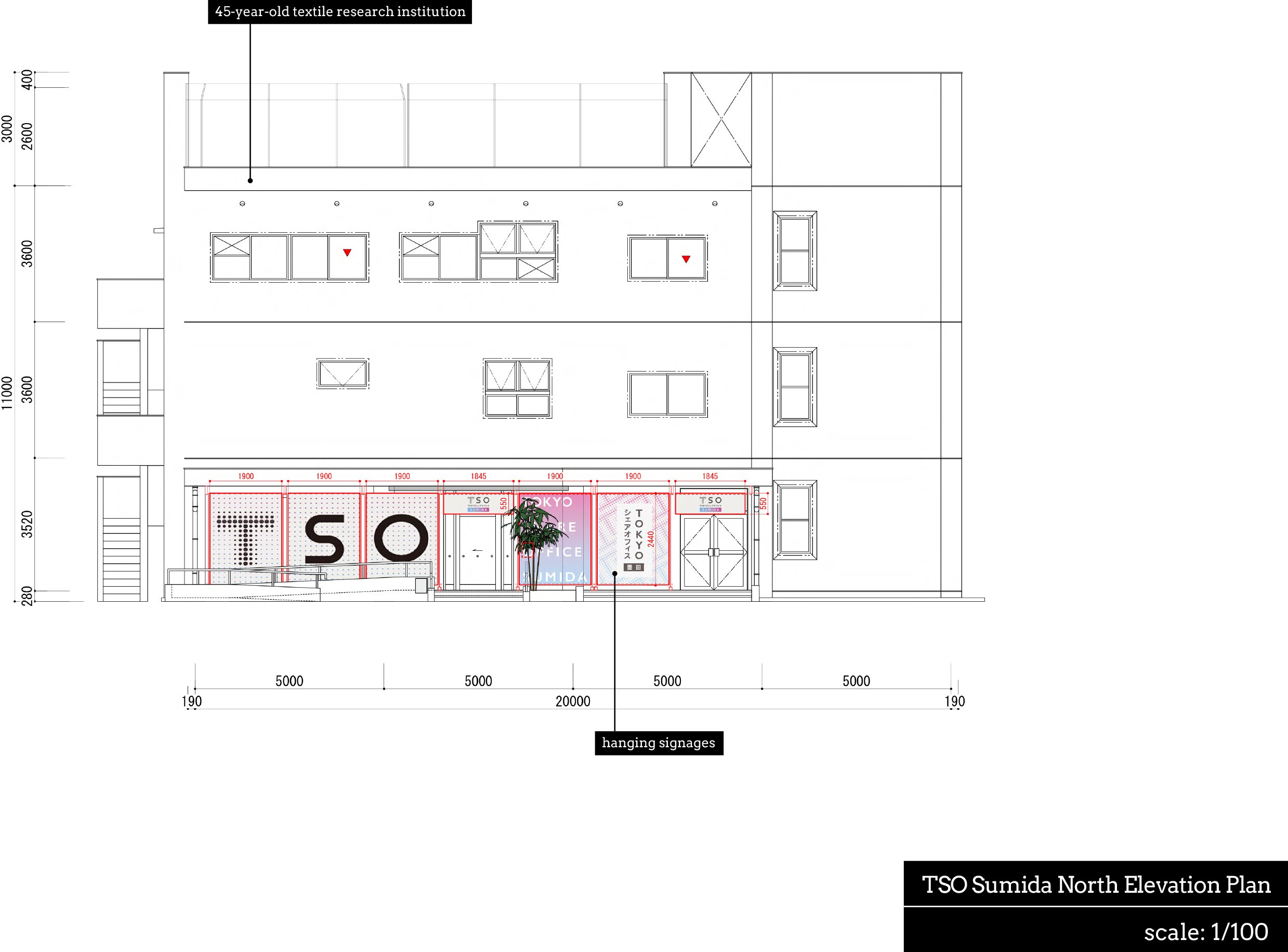
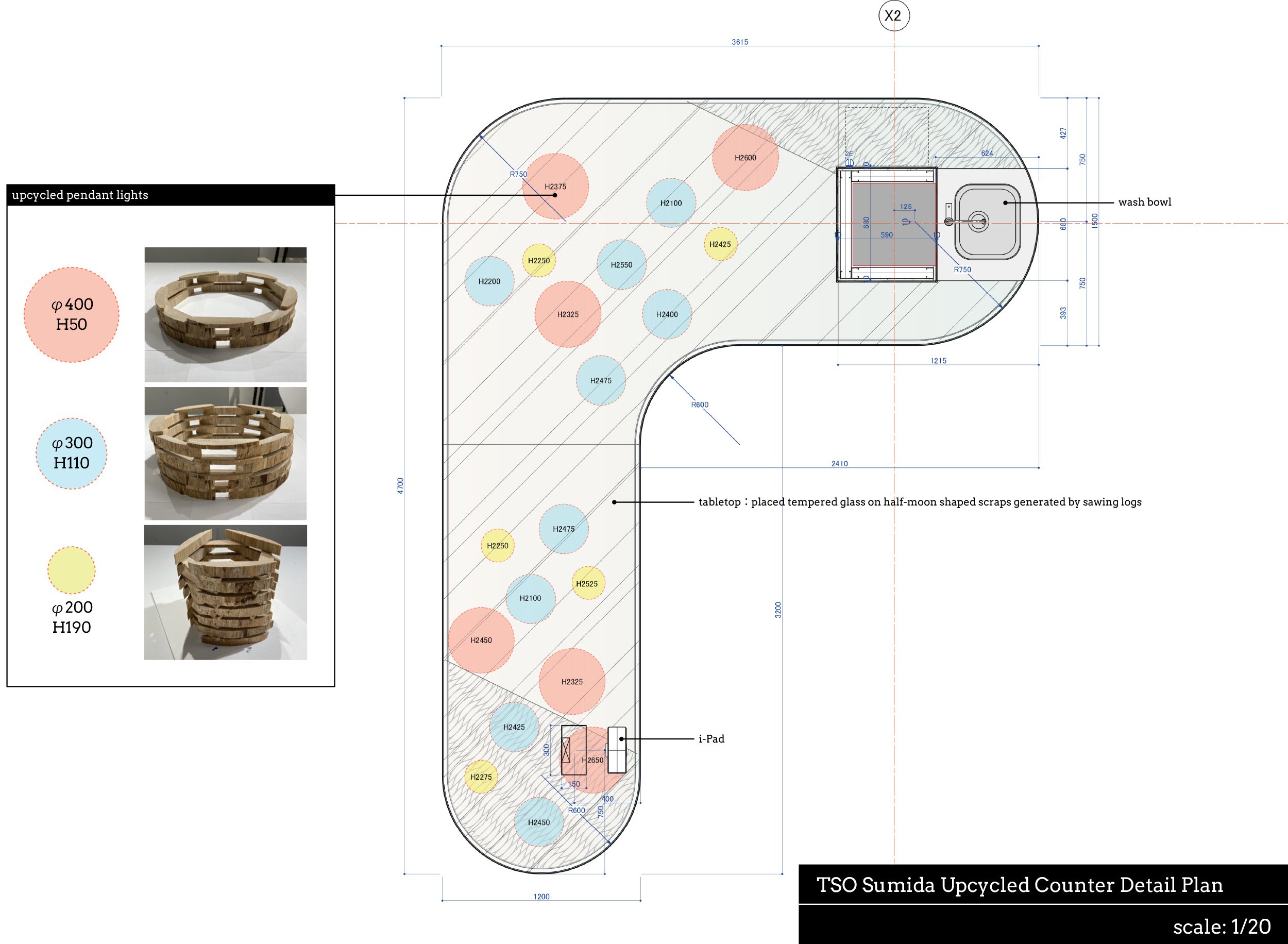
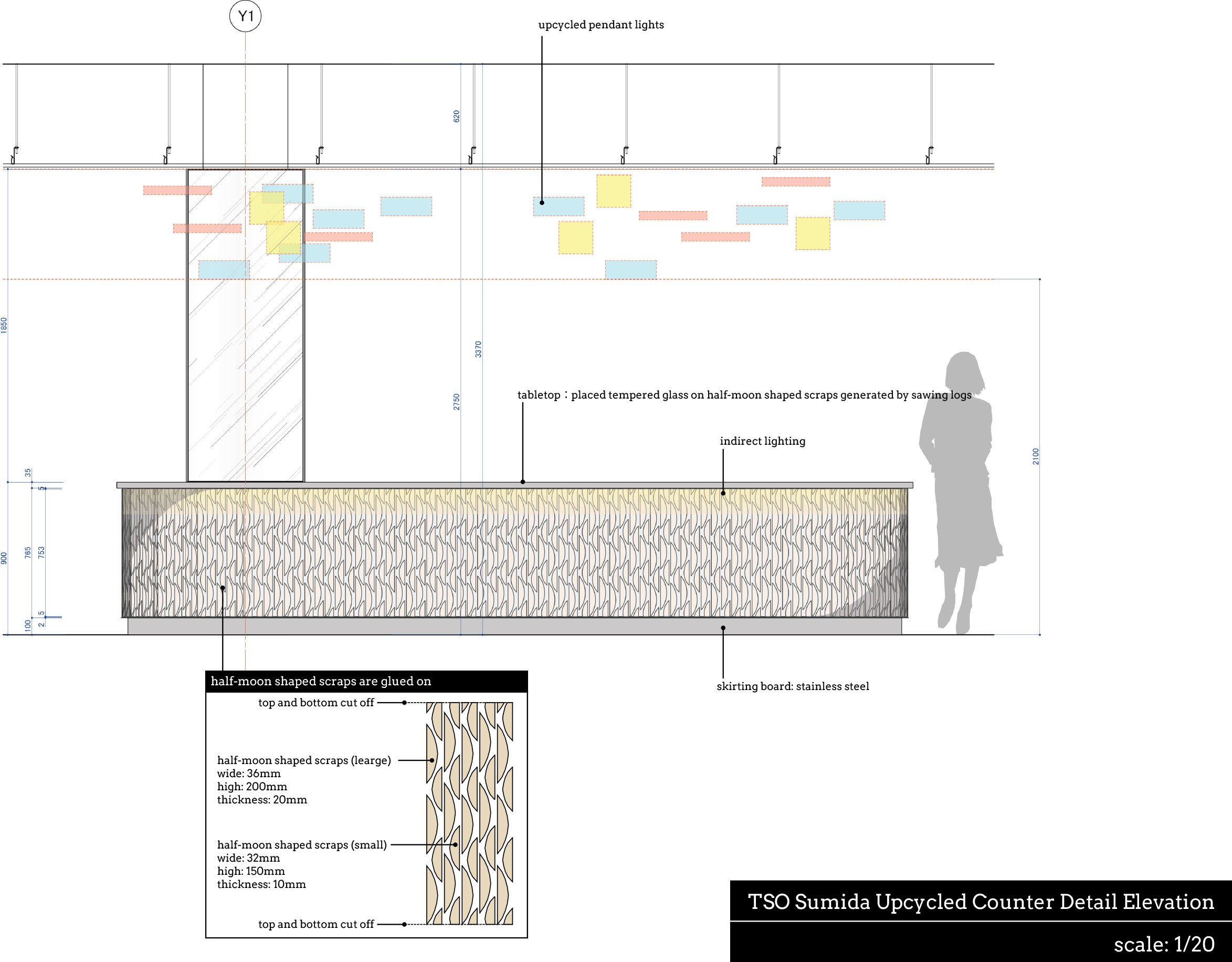
For more information, please check the website: https://www.semba1008.co.jp/en
